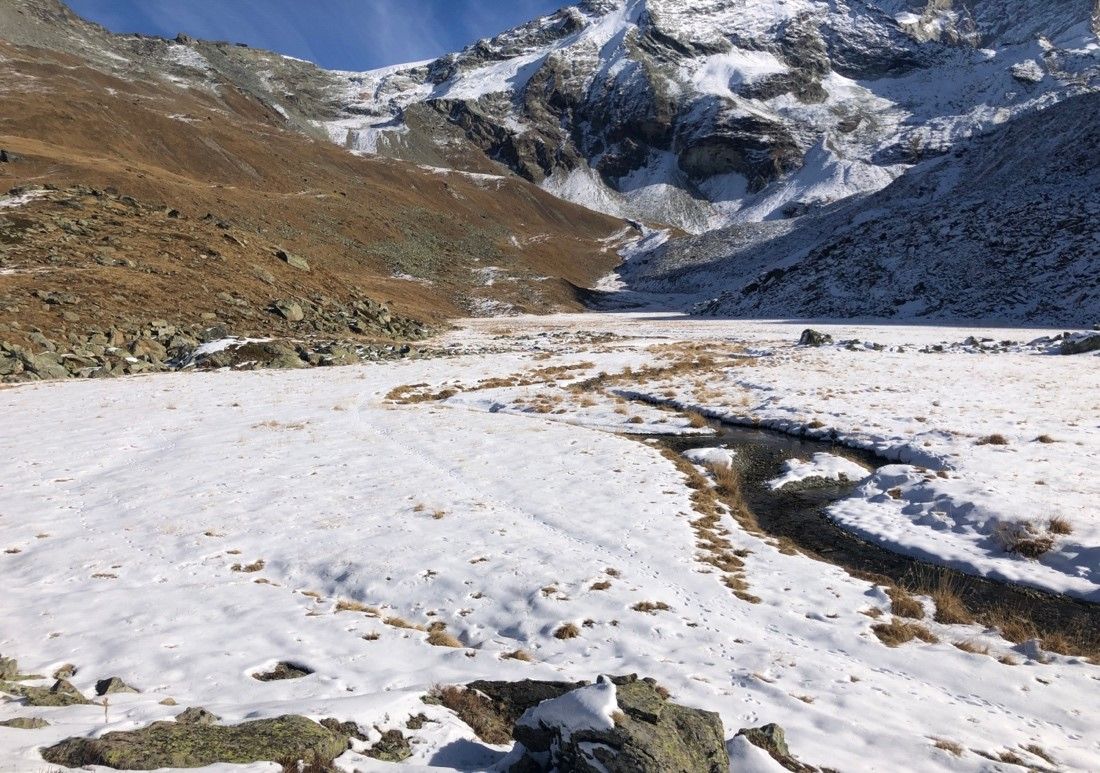Soils are an important component of the global carbon cycle and play a pivotal role in climate regulation. Current estimates suggest that soils store more carbon than the total amount of carbon in the atmosphere and biosphere combined and are taking up one fifth of annual anthropogenic carbon dioxide emissions. Soil organic carbon also contributes to the provisioning of ecosystem services by supporting soil structure and resistance to erosion, soil fertility, water quality and retention, and biodiversity.
Yet, our understanding of the processes and mechanisms that control soil organic carbon transformations are incomplete and the response of the soil carbon pool to climate change remains one of the primary sources of uncertainty in projections of atmospheric carbon dioxide concentrations.
At SOIL, we study the fundamental principles and processes that govern the biogeochemical cycling of key elements such as carbon in soils. We are particularly interested in electron transfer or redox (from reduction-oxidation) reactions and their role in element cycling. These reactions are central to the transformation of energy in the environment and underpin most biogeochemical cycles on Earth.
One of the main drivers of carbon cycling is the activity of heterotrophic organisms. These organisms gain energy by oxidizing organic carbon to carbon dioxide and transferring the liberated electrons to an electron acceptor. Under oxygen-depleted conditions, some microorganisms can use redox-active minerals, such as iron minerals, as electron acceptors. These minerals are abundant in many soils but their reactivity toward accepting electrons from microorganisms is difficult to measure and predict. In previous work, we developed experimental methods and theoretical approaches to characterize the redox properties of minerals and showed that microbial carbon dioxide production scaled with mineral redox properties in oxygen-depleted soils.
In an ongoing project, we are assessing controls on carbon turnover in mountain soils. Mountain environments host a mosaic of soils with different characteristics reflecting the large variability in soil forming factors across small spatial scales. These soils store most of the ecosystem carbon, particularly above the treeline. However, except for a few point measurements, we lack information on the amount and spatial distribution of soil organic carbon in these environments.

The goal of the proposed project is therefore to assess the abundance, distribution, and vulnerability of soil organic carbon to climate change in selected catchments in the Swiss Alps. To this end, we will:
1. produce an inventory of SOC abundance and distribution in relation to soil properties in selected catchments in the Swiss Alps,
2. identify dominant mechanisms of soil organic carbon stabilization across landscape positions in these catchments,
3. assess the vulnerability of soil organic carbon to vegetation shifts in a changing climate in manipulation experiments.
We anticipate that the findings of our work will help identify threats to ecosystem services provided by mountain soils in a changing climate and improve the representation of soil processes in global carbon cycle models.
About the author:
Meret Aeppli is an assistant professor and head of the soil biogeochemistry laboratory at EPFL. Before joining EPFL, Meret Aeppli was a postdoctoral fellow at Stanford University in the department of Earth System Science from 2019 to 2022. She holds a Bachelor's and a Master's degree in Environmental Sciences from ETH Zurich and obtained her PhD from ETH Zurich in 2018.
This article is related to our CLIMACT Seminar Series, episode 6, where Meret Aeppli presents on "Electron Transfer Reactions in Soils and Their Implications for Biogeochemical Element Cycling". Watch the episode 6 to learn more about this topic!
More about CLIMACT :
Don't miss our upcoming events and CLIMACT seminar series, read our articles and follow us on Twitter (@ClimactSuisse and @ClimactSwiss) as well as on Linkedin to stay informed of all our news.